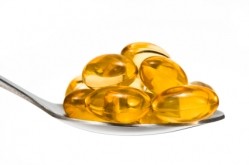EU safe vitamin and mineral source list finalised, finally

Although EFSA’s opinions require validation by the European Commission and member states at an unknown future juncture, the finalisation of EFSA’s work has been welcomed by industry relieved to see the risk assessor found safety issues with very few nutrients, although more than half of the dossiers could not be assessed for lack of evidence.
EFSA processed 533 applications relating to 344 nutrients and identified safety concerns with 39 of them. But those with safety concerns were usually identified at certain levels and often in regard to particular population groups rather than being defined as unsafe per se.
So forms of potassium and chromium that had safety questions raised, may yet appear on the Annex 2 positive list of the Food Supplements Directive (FSD), depending on the manner in which they are treated by the European Commission.
“Our part of the work is done,” said EFSA spokesperson, Andrew Cutting. “It is now up to the EC to finalise the list.”
Better than hoped for
Paul Chamberlain, technical director at supplements manufacturer, Solgar UK, welcomed the completion of a process that initially alarmed industry in liberal markets such as the UK, Sweden, the Netherlands and Ireland.
“There are no real surprises – everything is there we expected to be there so we are pleased about that,” he told NutraIngredients.com this morning. “The effect on our product range is limited to a couple of reformulations and one or two products that will be withdrawn.”
He speculated niche manufacturers may be more severely impacted if they are forced to alter products that may form a large percentage of their turnover.
“But by and large the big suppliers have got their act together and got the job done on this and it is a relief to have it done. It’s definitely turned much better than we expected.”
The FSD states that the derogation period ends on December 31, after which all food supplements marketed across the 27-member state bloc can only contain vitamins and minerals that appear on the Annex 2 positive list.
MPLs
Sue Croft, director of the UK lobby group, Consumers for Health Choice (CHC), agreed the FSD had not delivered the doom and gloom, mass product withdrawals predicted when the FSD became law in 2002.
“This is testimony to an industry that really pulled together to gather the information required to keep this market alive and well and it should be congratulated for that,” she said.
But Croft warned while the safety of a great number of nutrients had been affirmed, the levels at which they can be used in food supplements had not.
“Maximum permitted levels (MPLs) are still to play for and are not likely to come any closer to being resolved until after the second Irish referendum on the Lisbon Treaty in October,” Croft said. “It is difficult to predict how this will play out.”
She expressed concern about the recent appointment of Lord Rooker as head of the UK Food Standards Agency, as he had in the past demonstrated a preference for low-dose supplementation for key nutrients such as vitamin B6.
John-Christian Larsen, the chair of EFSA’s Panel on additives and nutrient sources added to food (ANS), said:
“Completing this huge task in line with the challenging deadline agreed with the European Commission is an important milestone in EFSA’s work in the area of consumer protection, and represents a significant achievement for the ANS Panel in particular. I would like to thank all of the scientists involved for their hard work.”
Other substances such as fatty acids, probiotics and marine-sourced ingredients such as glucosamine and chondroitin will continue to fall under member state jurisdiction, although their addition to the FSD is being considered.











